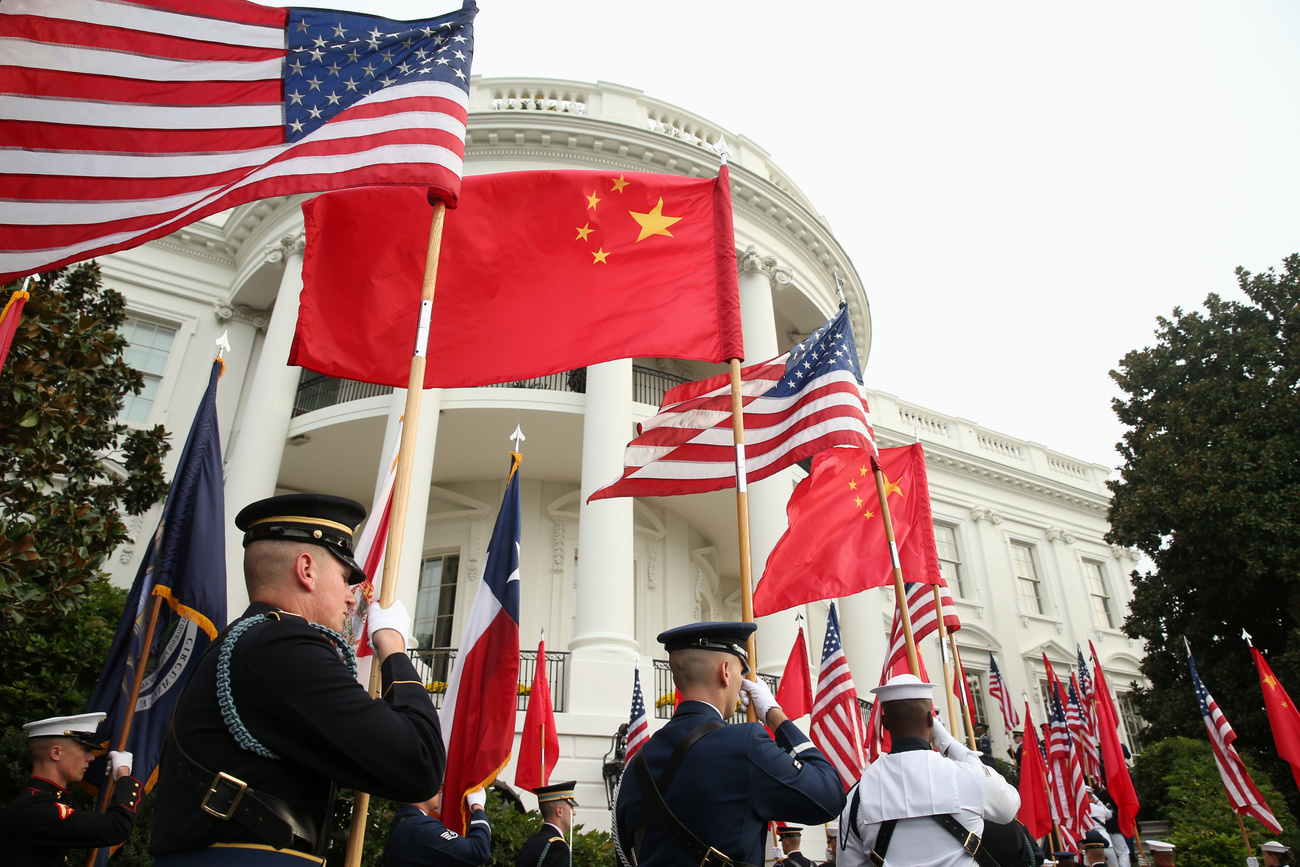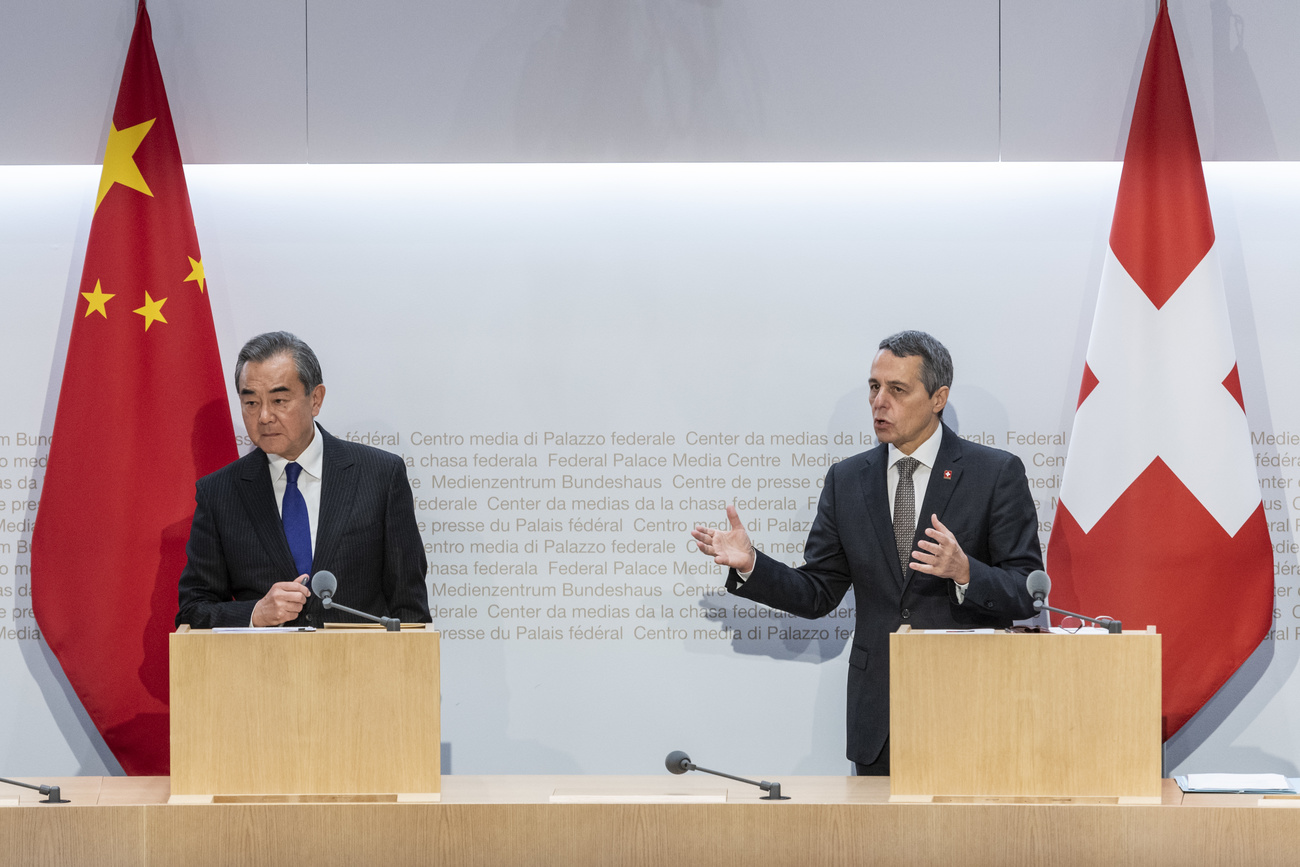Switzerland unveils its first China strategy

The Swiss government says its first ever China foreign policy strategy is intended to create “greater coherence" in its relations with Beijing, even if there are “clear differences in values between the two countries”.
The move comes at a time when the United States is working out its own plan for dealing with China.
China has grown rapidly in recent years, becoming a major international force both economically and politically, a government statement saidExternal link. China is Switzerland’s third-largest trading partner, there is a free trade agreement and “dozens of channels for dialogue”.
“There are also clear differences in values between the two countries, however, and it is therefore vital to ensure that policy towards China is clear and consistent,” Friday’s statement said.
Human rights
Presenting the foreign policy on China (for 2021-2024) in Bern, Swiss Foreign Minister Ignazio Cassis said that human rights dialogue and trade interests were the two key issues that would mark bilateral relations. Switzerland wants an independent China policy, where problems are addressed, he added.
“China willingness to have a dialogue on human rights has lessened, while the human rights situation in the country has got worse,” Cassis told reporters.
Human rights dialogue remains key for Switzerland. “What is new is that human rights will be addressed for all bilateral agreements,” the minister said.
Switzerland is willing to continue its human rights dialogue – which stalled in 2018 – with China, the government said. “A difficult dialogue is better than no dialogue,” said Cassis.
Prosperity
Apart from peace and security, other key areas outlined in the strategy include prosperity, which addresses trade, investment, export promotion, education and research, as well as tourism. Here the government made particular mention of intellectual property rights – a trade bugbear – as well as the need to modernise the bilateral free trade agreement.
Campaigners in Switzerland have been urging the Swiss government to renegotiate a six-year-old free trade agreement with China to try to improve the human rights situation in the country. There have been widespread media reports of state-run detention camps in northwest China to suppress the Uyghur Muslim minority.
Sustainability is also a topic, as is digitalisation. “This is also where problems originating from differing values and systems come to the fore, however. Switzerland advocates an intact digital space that is governed by the principles of international law. International Geneva is to play a central role here,” the government statement noted.
Business, education
Information exchange and coordination should also be improved to facilitate the sharing of information among all government departments dealing with China. The government also welcomes exchange among other players such as business representatives, NGOs and higher education institutions as part of a “whole-of-Switzerland” approach, it said.
The Federal Council (government) will now inform the foreign affairs committees in parliament of the strategy.
Reaction
In a first reaction, the Swiss NGO Society for Threatened Peoples saidExternal link that the government had “expressed several concerns but no consequences”. It said that the new policy offered no alternative to “change through trade” and called for stronger measures to develop a “coherent human rights policy and in particular to link the areas of economy and human rights”.
The Swiss Trade Association (SGV) however welcomed the strategy as a “step in the right direction”. But it saidExternal link that “geopolitical challenges were being generally played down by the government”.

More
What Switzerland can do about the US-China rivalry

In compliance with the JTI standards
More: SWI swissinfo.ch certified by the Journalism Trust Initiative






















You can find an overview of ongoing debates with our journalists here . Please join us!
If you want to start a conversation about a topic raised in this article or want to report factual errors, email us at english@swissinfo.ch.